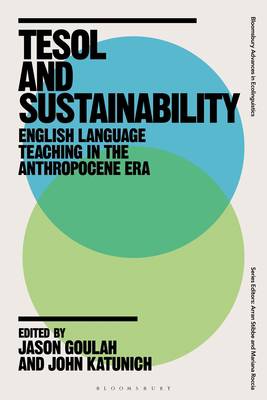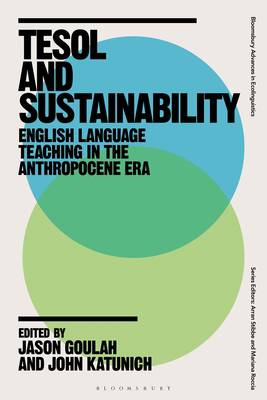
- Afhalen na 1 uur in een winkel met voorraad
- Gratis thuislevering in België vanaf € 30
- Ruim aanbod met 7 miljoen producten
- Afhalen na 1 uur in een winkel met voorraad
- Gratis thuislevering in België vanaf € 30
- Ruim aanbod met 7 miljoen producten
Zoeken
TESOL and Sustainability
English Language Teaching in the Anthropocene Era
€ 72,95
+ 145 punten
Omschrijving
In the burgeoning field of ecolinguistics, little attention has been given to the ways in which English language teaching is and has become implicated in global ecological crises. This book begins a dialogue about the opportunities and responsibilities presented to the TESOL field to re-orient professional practice in ways that drive cultural change and engender alternate language practices and metaphors.
Covering a diverse range of topics, including anthropogenic climate change, habitat loss, food insecurity and mass migration, chapters argue that such crises require not only technological innovation, but also cultural changes in how human beings relate to each other and their environment. Arguing that it is incumbent upon the field of English language teaching to reckon with such cultural changes in how and what we teach, TESOL and Sustainability addresses the ways in which discourses such as eco-pedagogy, the critique of neo-liberalism, non-Western philosophy and post-humanist thought can and must inform how and what is taught in ESL and EFL classrooms.Specificaties
Betrokkenen
- Uitgeverij:
Inhoud
- Aantal bladzijden:
- 216
- Taal:
- Engels
- Reeks:
Eigenschappen
- Productcode (EAN):
- 9781350294516
- Verschijningsdatum:
- 18/11/2021
- Uitvoering:
- Paperback
- Formaat:
- Trade paperback (VS)
- Afmetingen:
- 156 mm x 234 mm
- Gewicht:
- 303 g

Alleen bij Standaard Boekhandel
+ 145 punten op je klantenkaart van Standaard Boekhandel
Beoordelingen
We publiceren alleen reviews die voldoen aan de voorwaarden voor reviews. Bekijk onze voorwaarden voor reviews.






